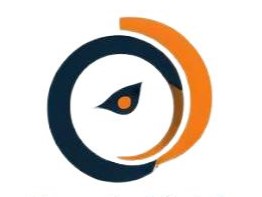
Focus groups are qualitative research methods in which a moderator guides a small group of participants, say 6–12 people, through a discussion to explore their thoughts, feelings, and attitudes about a particular topic, product, service, or idea. The interactive format encourages participants to share insights and reactions, often revealing deeper opinions and motivations than individual surveys or interviews.
In conducting market research with focus group participants, business owners can transform their research because the right participant not only affects the validity of the research outcome but affects the whole market research procedure, sourcing participants who can represent the larger population is the goal of every market research.
Focus group participant recruitment is important to the market research process because:
- It enables researchers to gain insights into the thoughts and experiences of people with the same characteristics.
- It helps the participants think and respond beyond what they would have done individually.
- It helps ensure that the research findings are credible, relevant, and feasible
- It improves the quality and reliability of the outcome of the research which enables business owners to make informed decisions.
The objectives of focus group participant recruitment are:
- It helps businesses stay competitive as participants discuss shifts in customer’s attitudes toward emerging trends, for example, the adoption of sustainable practices in business operations.
- It provides valuable outcomes and helps researchers overcome obstacles and obtain desired goals, this could be testing products or generating ideas such as product branding to know which option resonates well with their target audience.
- It studies consumer behavior to know why consumers prefer a particular product to another, how they use the product, and what they value in the product.
Recruiting the right participants for focus groups can significantly transform the outcomes of your research by enhancing the substance, accuracy, and feasibility of insights gathered. Here is how effective participant recruitment impacts research:
- Relevance of insights: By choosing to use targeted participants who serve as representatives of your audience, the feedback and opinions gathered are certain to be directly relevant to your research objective.
- Informed decision-making: Insights from well-recruited focus groups can drive better business decisions. This can help in making adjustments to products, re-strategizing, and knowing the customer’s wants and needs and how best to solve the problem.
- Diverse Perspectives: Focus group recruitment allows you to bring together a diverse group of participants, enriching the focus group discussions with different perspectives. This diversity can highlight trends, uncover hidden opportunities, and provide a more holistic market understanding.
- Improved Data Quality: Participants aligned with the research purpose contribute meaningful and authentic responses, leading to higher-quality data. For instance, engaging individuals who use a specific product or service ensures firsthand, actionable insights, rather than irrelevant feedback.
- Cost and Time Efficiency: By using recruitment platforms such as Prolific, social media outreach, or partnerships, you save time and resources compared to broad, generalized efforts. The right participants reduce the need for follow-up studies by providing impactful and usable data upfront.
Ready to transform your research game? Contact us at https://peoplesight.co.uk/ to recruit quality and targeted participants who can provide better insight into your business.

